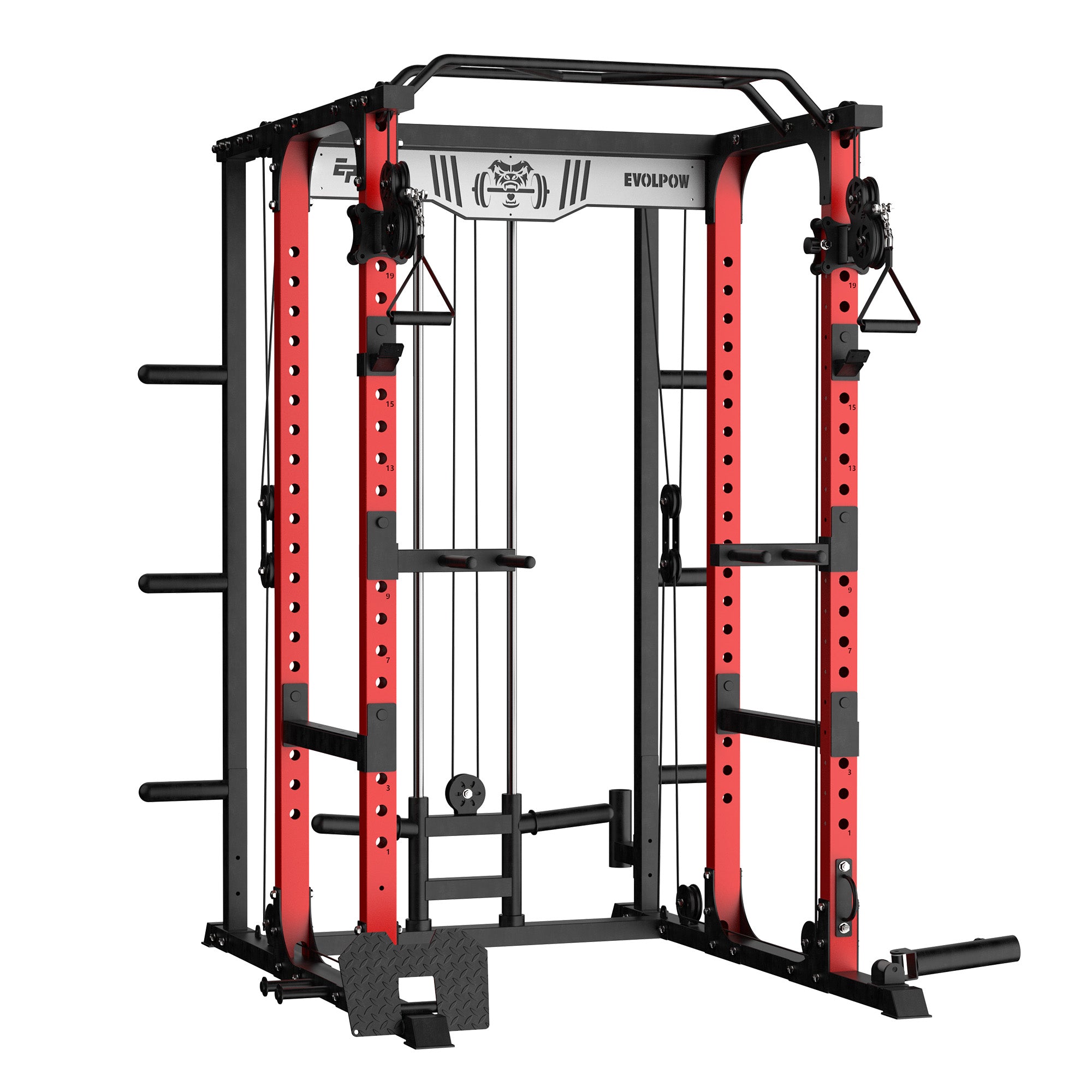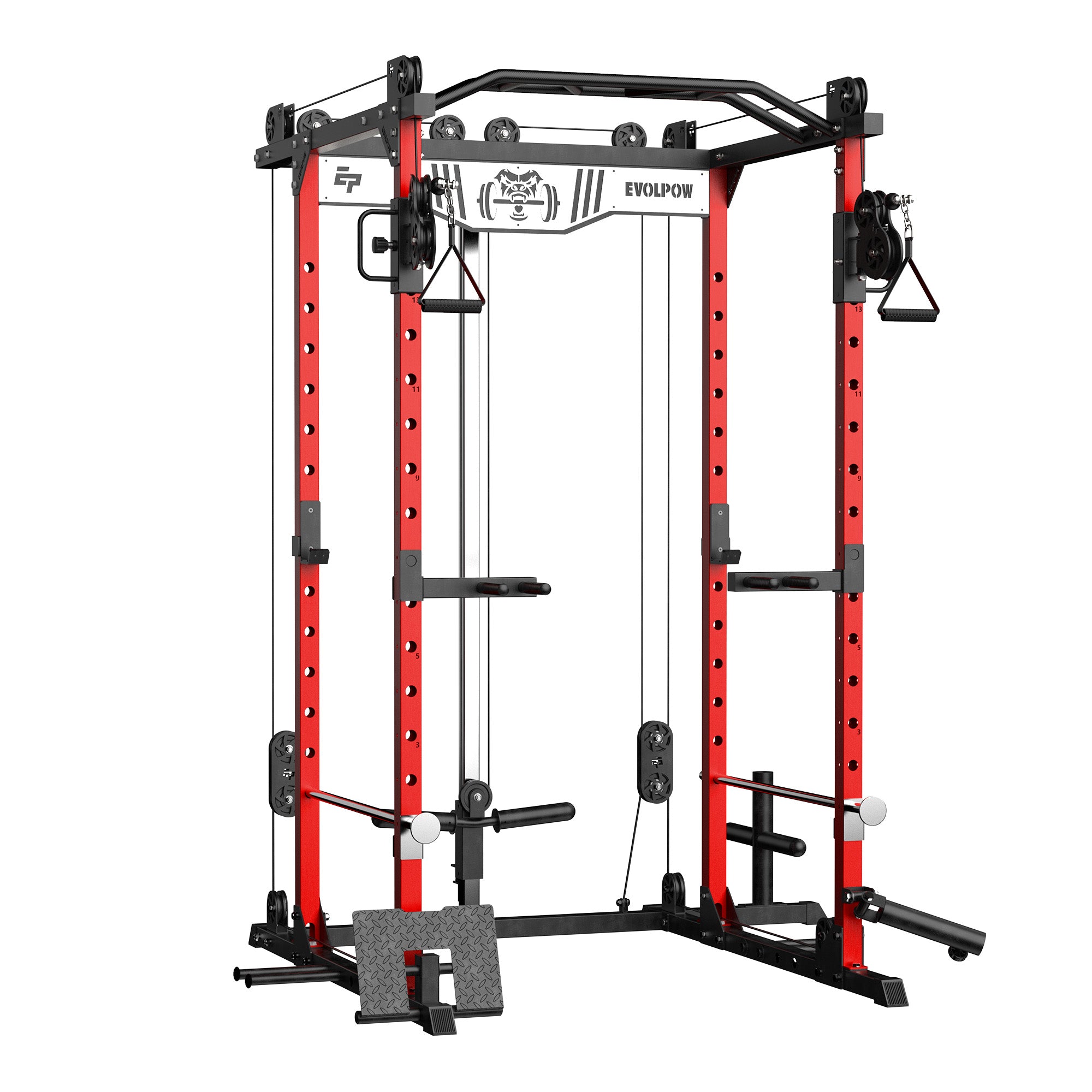When setting up the best barbell for home gym, it’s crucial to consider not only the barbell itself but also the accessories that enhance your workout, such as barbell collars. A well-rounded gym routine for muscle gain requires reliable equipment to ensure safety and efficiency during your lifts. Let’s explore how to optimize your home gym setup for maximum gains!
CONTENTS
What Are Barbell Collars?
Benefits of Barbell Collars
Types of Barbell Collars
Choosing the Right Barbell Collar for You
What Are Barbell Collars?
Barbell collars are devices that secure weight plates on a barbell, preventing them from slipping off during a workout. They come in various designs and materials, each offering different advantages and disadvantages. The primary purpose of a barbell collar is to ensure that the weight plates stay in place, providing stability and safety during lifts.
Benefits of Barbell Collars

-
Safety: Prevents weight plates from sliding off, reducing the risk of injury.
-
Stability: Keeps the weights balanced, ensuring a smooth and controlled lift.
-
Efficiency: Allows for quick and easy weight changes, saving time during workouts.
Types of Barbell Collars
-
Spring Collars
-
Material: Steel
-
Design: Simple, spring-loaded design that you squeeze to open and attach to the bar.
-
Pros: Inexpensive, easy to use, widely available.
-
Cons: Can lose tension over time, less secure than other types.
-

-
Lock-Jaw Collars
-
Material: High-impact plastic or nylon.
-
Design: Lever mechanism that locks the collar in place.
-
Pros: Very secure, easy to use, quick to attach and remove.
-
Cons: Slightly more expensive than spring collars, they can wear out over time.
-

-
Clamp Collars
-
Material: Steel or aluminum.
-
Design: Clamp mechanism that tightens around the bar.
-
Pros: Extremely secure, durable, suitable for heavy lifting.
-
Cons: Heavier and more expensive, may require more effort to attach and remove.
-
-
Spin-Lock Collars
-
Material: Metal or plastic.
-
Design: Screws onto the barbell to secure plates.
-
Pros: Secure, good for adjustable dumbbells and barbells.
-
Cons: Takes longer to adjust, not as quick as other types.
-
Choosing the Right Barbell Collar for You
Your choice of barbell collar depends on your lifting style, budget, and preferences. Here’s a quick guide:
-
For Beginners: Spring collars are an excellent choice for beginners due to their simplicity and affordability.
-
For Home Gyms: Lock-jaw collars offer a balance of security and ease of use, making them ideal for home gym setups.
-
For Experienced Lifters: Clamp collars are perfect for those lifting heavy weights regularly, providing the highest level of security.
-
For Versatility: Spin-lock collars are great if you need a versatile option for different types of equipment.
EVOLPOW’s Range of Barbell Collars
At EVOLPOW, we offer a range of barbell collars to suit every lifter’s needs:
-
EVOLPOW Spring Collars: Made from high-quality steel, these are perfect for beginners and those looking for a cost-effective option.
-
EVOLPOW Collars: Crafted from durable nylon, these collars provide excellent security and are easy to use, ideal for any home gym.
-
EVOLPOW Collars with Megnets: The magnetic attachment is not only secure but also adds an extra layer of convenience, allowing for swift and reliable bar and plate holding. This feature ensures effortless storage on rigs or racks, providing a streamlined and accessible solution for keeping your workout space tidy and efficient.
-
EVOLPOW Aluminum Collars: Crafted from robust yet lightweight high-quality aluminum alloy, these barbell clamps guarantee durability. With exceptional strength, these clamps provide a firm and secure hold, ensuring long-lasting use.
Explore our range of barbell collars at www.evolpow.com and find the perfect fit for your workout routine.
FAQ
Q: How do I know which barbell collar to use?
A: Consider your lifting style, the weight you’re lifting, and your budget. Beginners might prefer spring collars, while experienced lifters might opt for clamp collars.
Q: Can barbell collars fit any barbell?
A: Most barbell collars are designed to fit standard Olympic barbells, but it’s essential to check the specifications to ensure compatibility with your equipment.
Q: How often should I replace my barbell collars?
A: Replace your barbell collars if they show signs of wear and tear, such as loss of tension or difficulty in securing the plates. Regularly inspect them to maintain safety.






